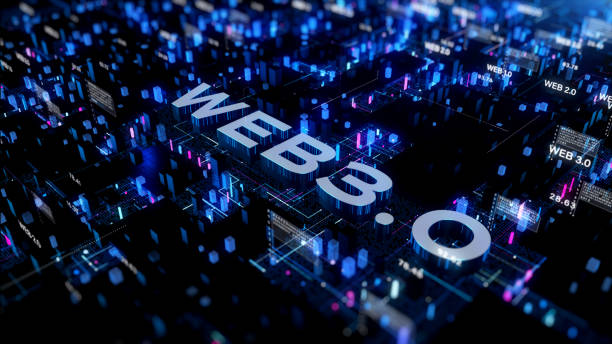With its decentralized, secure, and transparent nature, blockchain technology has emerged as a disruptive force that is reshaping numerous industries. Blockchain has advanced significantly since its conception, moving beyond its initial link with cryptocurrencies like Bitcoin. In 2023, blockchain will find use cases across a variety of industries, creating new chances for productivity, security, and innovation.
What is Blockchain?
A distributed database or ledger shared by the nodes of a computer network is known as a blockchain. However, they are not only used in cryptocurrency systems, where they play a vital function in keeping a secure and decentralized record of transactions. Any industry can use blockchains to make data immutable, which is the phrase for the inability to be changed.
The only place where trust is required is when a user or program enters data, since a block cannot be changed after it has been created. This feature lessens the requirement for trustworthy third parties, who are typically auditors or other creatures who incur expenses and commit errors.
Blockchain applications have multiplied since the launch of Bitcoin in 2009 thanks to the development of several cryptocurrencies, DeFi applications, non-fungible tokens, and smart contracts.
How does blockchain work?
In essence, a blockchain is a distributed ledger that is shared, synchronized, and encrypted across all network members. Each transaction between participants is recorded in an initial record, or block, with a time stamp. Then, any modification generates a new block that is connected to the prior block, and so on, forming a chain of blocks that displays all previous transactions. The blockchain can be used to store digital data about a product at every stage of the food supply chain, from the farm to the consumer. Each transaction creates a permanent record of the data that can never be changed without the agreement of all other blocks and the users of the network. The blockchain promotes confidence based on the network itself rather than a central authority through these processes.
Each transaction is encrypted when it is added to a blockchain architecture. Each block also includes the hash and transaction information from the preceding block, as well as a unique randomly generated character string that is frequently represented as a number. Each transaction generates a new hash that must coincide with the previous block’s hash to be accepted. Smart contracts that enable automatic payments or other transactions between parties can be included in blockchains. Transactions can be private (seen by only authorized participants, allowing proprietary information to be kept private) or public (visible by every network participant). Traceability is still possible even if not all of the blockchain’s data is revealed.
Blockchain in Finance and Banking
- CBDCs (Central Bank Digital Currencies): Governments and central banks are looking at the prospect of using CBDCs to represent national currencies digitally. We will evaluate how CBDCs affect monetary policy, financial inclusion, and financial systems.
- Transforming Payments and Remittances: Blockchain’s influence on the financial industry may be seen in its capacity to simplify international transfers of money. Traditional payment systems are being replaced by transactions that are quicker, more affordable, and more secure.
- Decentralized Finance (DeFi) Revolution: With its decentralized lending, borrowing, and yield farming options, DeFi has become one of the most revolutionary developments in finance. We will go into detail about the drawbacks and advantages of DeFi as well as regulatory issues.
- Blockchain Security and Financial Fraud Prevention: The security measures built into the blockchain are essential for reducing fraud and protecting data privacy in the banking industry. We’ll look at examples of how blockchain has improved financial cybersecurity.
Blockchain in Healthcare
- Data Interoperability and Electronic Health Records (EHRs): Electronic health records (EHRs) can be shared securely and interoperably among healthcare providers, enhancing patient care and data accessibility.
- Traceability of Drugs and Counterfeit Prevention: Blockchain technology can be used by the pharmaceutical business to track the entire drug supply chain, limiting the entry of fake drugs into the market and verifying the validity of pharmaceuticals.
- Innovation in Healthcare with Blockchain: From telemedicine and remote patient monitoring to AI-driven diagnostics and tailored treatment, we’ll examine how blockchain is fostering innovation in the healthcare industry.
Blockchain in Real Estate
- Real Estate Transactions Using Smart Contracts: By automating processes like escrow, title transfers, and payment settlements, smart contracts streamline real estate transactions, obviating the need for middlemen and quickening the purchasing process.
- Land Registry data and property records: Land registries built on blockchain technology offer safe and unchangeable property records, lowering the possibility of property disputes and streamlining the ownership verification procedure.
- Tokenization of real estate and fractional ownership: By allowing real estate assets to be tokenized, blockchain enables investors to buy fractional ownership in homes and creates liquidity in previously illiquid markets.
- Blockchain in Real Estate: Regulation and Challenges; The real estate sector is being disrupted by blockchain, but there are issues with regulatory compliance, standards for property tokenization, and the conversion of traditional systems to blockchain solutions.
On an economic and business level, the blockchain sector has unlocked a whole new world of opportunity. This is all due to its powers to improve security and privacy. The Business Research Company predicts that the market for worldwide blockchain services will increase from $3.28 billion in 2022 to $4.7 billion in 2023 to a mind-boggling $19.76 billion by 2027.
What are the top blockchain trends for 2023 that will influence the development of technology? Let’s look at it.
- Rise in Blockchain-Based Application Development: Blockchain-savvy software developers will be in high demand in 2023. Blockchain technology will become increasingly necessary as more sophisticated Know Your Customer (KYC) features, secure transactions, and other functions are developed.
- Value Chains: Traceability is made possible throughout the whole supply chain via blockchain technology. Blockchains allow for instantaneous access to the status or legitimacy of a product since they record data in a digital, decentralized ledger. In addition to increasing efficiency and reliability, this also establishes a global value chain for goods.
- Banking and Decentralized Finance: Instead of paying a set fee or charge for using a bank’s services, Decentralized Finance (DeFi) entails holding money in a safe digital wallet through smart contracts. The future of finance may very well be the use of blockchain technology.
- Trade internationally: Many companies have adopted the blockchain environment, and smart contracts are a key component of that ecosystem. Documents like licenses and certificates, among others, are made simpler by it. By doing so, total costs are decreased and reliance on third parties is removed. Furthermore, it enhances the efficiency and precision of conducting international transactions.
- Payment systems online and cryptocurrencies: Blockchain technology is used by both cryptocurrencies and blockchain payment systems to store transactional data in peer-to-peer networks and do away with the need for centralized organizations like banks. As a result, there is a greater need for high-performance systems with faster transaction times, which also decrease transaction costs and improves security.
- Increasing Enterprise Use of Blockchain: The expansion of blockchain-based enterprise operations is one of the top blockchain trends of 2023. More businesses are likely to take advantage of this technology because of the better security, transparency, and protection from cyberattacks that decentralized blockchains provide.
By enabling decentralization, transparency, and security across many industries, blockchain technology will have advanced significantly by 2023. Blockchain has ushered in a new era of innovation and efficiency across a variety of industries, including banking and supply chain management, as well as healthcare, real estate, government services, energy, and more.
Industry participants must work together to overcome issues with scalability, interoperability, regulation, and user adoption as blockchain continues to develop. Industries can build more inclusive, sustainable, and resilient ecosystems that benefit corporations, governments, and people by embracing the possibilities of blockchain.
As time goes on, the continued expansion and adoption of blockchain technology will open up new possibilities for economic development, social empowerment, and technological innovation, paving the way for a more decentralized and linked world. Blockchain will likely play a crucial role in determining the destiny of industries in the next years thanks to its transformational potential.






